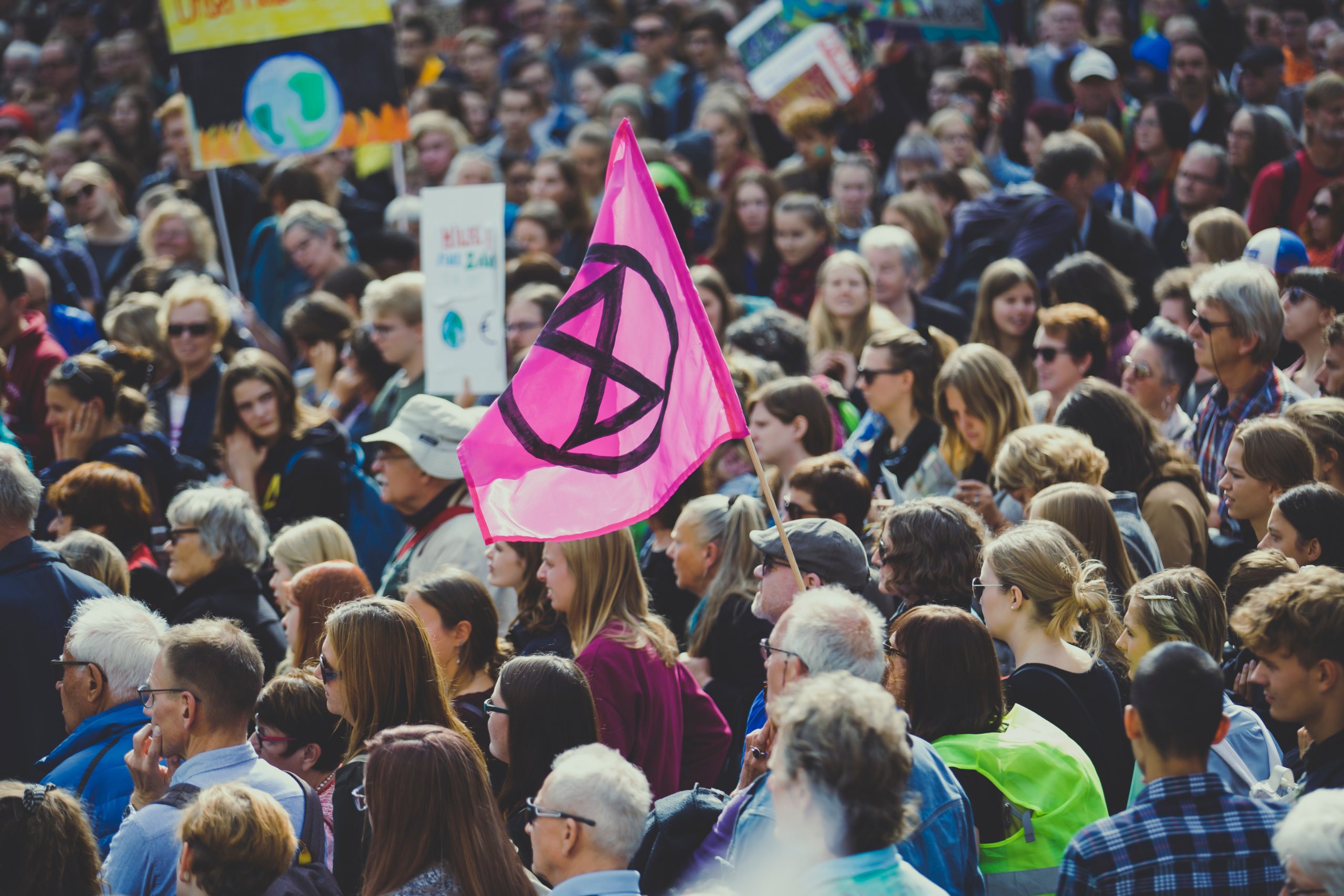
Sci&Tech Writer Daniel Bray discusses the recent movement and its goals
From a Paralympian sitting on the top of a plane to the spraying of the Treasury with fake blood, we have recently witnessed 14 days of social disruption caused by climate change activism group Extinction Rebellion. With Prime Minister Boris Johnson labelling the group as a bunch of ‘uncooperative crusties‘ and many people feeling that the protests are nothing more than a waste of police resources, you would be forgiven for wondering what Extinction Rebellion have actually achieved.
“Has the declaration of a climate emergency set any change into motion? Not really
Extinction Rebellion UK have three goals: get governments to declare a ‘climate and ecological emergency’; reduce greenhouse gas emissions to net zero by 2025; and make decisions based on a “Citizen’s Assembly on climate and ecological justice”. Their first goal, of getting governing bodies to acknowledge a climate emergency, has been a great success so far, with 245 out of 408 councils in the UK declaring one, as well as the government declaring a nationwide climate emergency in May.
Has the declaration of a climate emergency set any change into motion? Not really. While many councils have said that they aim to be carbon-neutral by 2030, and Scotland aims to be net-zero by 2045, the government’s goal is only to reduce emissions by 80%, compared to 1990 levels, by 2050.
Extinction Rebellion are right to be concerned – the current promises to cut emissions in the Paris climate change agreement are projected to cause the planet to rise in temperature by 2.9°C by 2100. A limit of a 1.5°C rise was agreed in Paris – this is the maximum temperature rise that scientists believe will prevent the most severe impacts of climate change. At a 2.9°C rise, we are clearly nowhere near the agreed target. Extinction Rebellion have approached many government departments, including the Home Office and Department for Business, Energy & Industrial Strategy, about how they plan to tackle the climate emergency that the government has declared, but they are yet to receive any response.
Achieving Extinction Rebellion’s second target of hitting zero emissions by 2025 is a gargantuan task by any stretch of the imagination. Sir David Attenborough said in a select committee meeting that ‘we cannot be radical enough’ when it comes to climate action. It’s no secret that the number of flights we take would have to plummet to almost zero, energy production would need to be rapidly moved towards greener options, and food production and consumption would have to change, all in the space of six years. On top of that, everybody in the country would have to dramatically alter their lifestyle, which is bound to cause some resistance.
In regard to Extinction Rebellion’s third goal in the UK, we can look across the channel to France, where President Emmanuel Macron has set up a citizens assembly on climate change – this is bound to be interesting, following the gilets jaunes (Yellow vests) protests over the now-abandoned carbon tax proposed at the end of 2018.
“British Airways have decided to offset all domestic flight emissions from next year
There are many reasons to be hopeful about the climate crisis – British Airways have decided to offset all domestic flight emissions from next year, and their owners IAG have become the first airline group to set their sights on net-zero emission flights; the National Theatre has decided to end their sponsorship deal with Shell from next year; and a group of 20 UK universities recently entered a £50 million deal to buy green energy directly from wind farms.
These small victories for climate activists don’t detract from the severity of the bigger picture. According to market research company Ipsos MORI, 78% of people agree that if we don’t change our habits quickly, we are heading towards an environmental disaster. It is this metric that surely is one of Extinction Rebellion’s greatest successes so far, and while it can not solely be attributed to their activism, they’ve certainly played a big role in increasing the general population’s awareness about the impact of climate change – and in a time full of despair, surely that’s a little something that they can smile about.
Comments